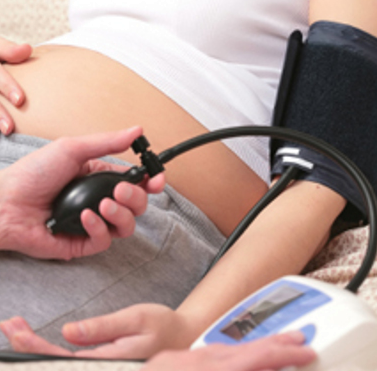This is one reason that prenatal care is so important. During routine visits your doctor will check your blood pressure and urine and possibly do more tests to look for preeclampsia. The condition is marked by high blood pressure and protein in the urine.
The signs and symptoms that are most often associated with preeclampsia include:
- High blood pressure
- Protein in the urine
- Swelling of the hands and feet
- Rapid weight gain (4 to 5 pounds in one week)
- Headaches
- Problems with vision
- Pain in the upper abdomen
- Seizures (a symptom of eclampsia, which occurs when preeclampsia becomes severe and harms internal organs)
Who Is At Risk For Preeclampsia?
Are You at Risk for Preeclampsia? Any woman can get preeclampsia during pregnancy. But certain factors increase the risk.Preeclampsia, also called pregnancy-induced hypertension or toxemia, is a serious illness that can come on during pregnancy. It can be harmful to both mother and baby.
Preeclampsia can strike any pregnant woman, so all women are screened for preeclampsia during prenatal doctor visits. Your doctor will regularly check you for high blood pressure and protein in your urine, which can signal preeclampsia if present at the same time.
Having certain factors can increase risk of preeclampsia. You have a higher risk if you:
- Are pregnant for the first time
- Have had preeclampsia in a previous pregnancy
- Had high blood pressure before pregnancy
- Have a mother or sister who had preeclampsia
- Are younger than 20 or older than 35
- Are pregnant with more than one baby, such as twins and triplets
- Have another medical condition, such as diabetes or kidney disease
- Have an immune disorder, such as lupus
- Were obese at the start of pregnancy
- Are African American
- Are carrying a baby with a chromosomal abnormality
Related Article:
- How Are Labor and Delivery Affected by Preeclampsia?
- High Blood Pressure During Pregnancy: How Is Preeclampsia Diagnosed?
- How Preeclampsia In The Mother Can Affect Her Baby
SOURCES:
- March of Dimes. High blood pressure and preeclampsia.
- American College of Obstetricians and Gynecologists. High blood pressure during pregnancy.
- American College of Obstetricians and Gynecologists. High blood pressure during pregnancy.
- Wagner LK. Diagnosis and management of preeclampsia. American Family Physician. 2004;70(12):2317-2324.
